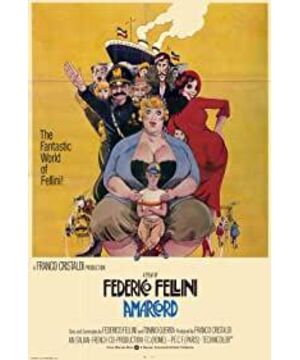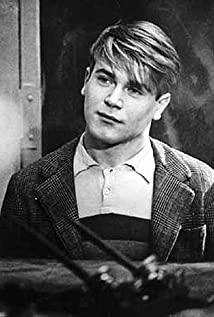who wakes up
the world ." -Federico Fellini Italian film has a pivotal position in the history of world film, the first filming in Italy since 1895 Since the beginning of the documentary, after more than a century of vicissitudes of life, after experiencing the depression after World War I and the restrictions and use of Mussolini’s government/government, it finally ushered in the spring of Italian cinema in the ashes of World War II artillery fire. . During this period, the whole of Italy is waiting to be flourished, and the People’s Democratic Movement is unprecedentedly high. It is a documentary reality that shows people suffering from the scourge of war, reflects the people's unyielding resistance against social injustices and a vision of a bright future. . In this period of vigorous development of film art, many films with different styles have been produced, which has also made several master-level figures in the history of Italian cinema and even in the history of world cinema. Federico Fellini is one of them.
Fellini’s works have no traces of carvings, and the narrative style is wild and unreliable. He may not catch your heart all at once, but his exaggerated and absurd expressions and unruly image style hidden behind the camera. People will never forget and have endless aftertastes. Whether in his early "Road" and "Sweet Life" and other films that reflect social issues, the extension and reflection of realist films, or the later autobiographical films "Eight and a half" and "I remember In ", the interpretation and promotion of neo-realism all demonstrate his unparalleled talent and sensitivity to artistic nature. Later, film critics summarized Fifeellini's artistic style with the five characteristics of "the literature of the future millennium" discussed by the Italian writer Calvino-lightness, speed, accuracy, visibility, and ambiguity.
"I Remember" is one of Fellini's works at his peak. Fellini, who had already reached Ai at that time, became more and more familiar with video art after his years of accumulation and insight. In this film, he used a messy narrative structure and a humorous shooting style. Between reality and dream, a feast of light and shadow is slowly laid out for us.
Zhang Ailing once wrote in the article: "If the memory of this thing has a smell, it is the fragrance of camphor, sweet and secure, like remembering happiness, sweet and melancholy, like forgotten sorrow." With this sentence, the little woman is slender. Sensitive minds are fully displayed. However, in Fellini's movie world, the memories become colorful, it is the dandelion flying all over the sky that brings spring news, it is the endless quarrel between parents, it is tightly wrapped in mature/mature/female/sex/carcass/body. The slack of her red dress is the arrogance of the lady of the grocery store, the long and boring lessons, etc..., all these messy and trivial people and things are crisscrossed and weaved into a Fellini's The Web of Memories. Both real and illusory, both melancholy and nostalgic.
The dictatorship of Mussolini’s government/house makes the town’s winter look longer and longer. Nothing is more pleasing than the dandelions floating in the sky. The messenger of this spring is like a warm current, dissolving the cold on people’s faces. Frost, the stagnant air in the small town is instantly smooth. A grand bonfire party can be regarded as a formal ceremony to welcome the arrival of spring. People laughed and exclaimed amidst the sound of firecrackers, singing and dancing around the bonfire. Fellini chose spring as the beginning of the film, a metaphor that his passionate youth is as beautiful as spring and as exciting as spring. The plump female body, the old streets of small Italian towns, the blue sea, etc. These film elements with the label of Fellini also exist in "I Remember" and there are many.
A rebellious little boy will never get his father's favor. In the little boy's impression, his father is always howling hysterically, while his mother is working depressed and helplessly amidst this howling. The courses in the school make people dying and sleepy. Perhaps only a spoof in class can make you feel more excited. The time after school is the beginning of the true youth passion, chasing the girl in red in my mind, imitating her walking posture, as if the inexplicable commotion and anxiety in my heart gradually subsided and moved away with the laughter. In the film, the mature sex/feeling girl in red is obviously a symbol of sex/desire. The boys are ignorant and at a loss, instinctively chasing the goddess in their hearts, and dismissing the gurgling sex/impulsiveness. Giuseppe Tonadore, who is also an Italian director, in "The Beautiful Legend of Sicily" filmed in 2000, whether it is the description of the repressive atmosphere of the small town or the sentiment of Malena Fellini’s shadow can be vaguely seen in the close-ups of "I Remember" or the scene depicting the little boy riding a bicycle in the streets and chasing Marlena.
The youth of a teenager is melancholy and helpless. How can a childish hairy boy win a woman's heart? He can only get in touch with the girl in red only if he imagines himself as a racer. The fat boy imagined that he drove the car so fast that he attracted the girl's glimpse. In the film, there are more than one such surreal shooting techniques. In the ceremony to pay tribute to Mussolini's head, the fat boy imagines the party as a wedding. The most ridiculous thing is that Mussolini is the wedding. Host. Here, Fellini used light-hearted lens language not only to indicate his contempt and indifference to politics, but also to taunt the dictatorship and despotism of those in power in a tactful yet sharp manner.
In fact, in the film, Fellini not only expressed a strong aversion to politics, but also expressed his own position on religious beliefs. In the episodes of going to church to repent, the priest was absent-minded about the little boy’s confession, instead he cares about how to insert flowers on the side, walked to correct him from time to time, and finally asked the boy whether he was masturbating or masturbating, and how the grocery store woman was. Amorous feelings. Fellini also mocked religion without mercy here. It can be seen that his irony is not sharp and direct, but it is impressive in the euphemistic and witty circuitous expressions.
Obviously, the film is not just a description of the traces of youth, nor is it just showing Fellini’s attitude towards politics and religious beliefs. You seem to be unable to find Fellini’s perspective on the boy, the fat boy, and the introducer. Fellini seems to be found in lawyers and homeless people. And the protagonist of the film is not a person, but the residents of the whole town. Those who have distinct shortcomings but are vivid and lovely, their memories are so clear and so full of personality. The tantrum father, the cold-hearted mother, the idiot uncle who stands on the big tree shouting in need of a woman, the bohemian prostitute/girl, the accordionist who shakes his head and throws his head into the playing, the rigid teacher, etc., these are in Fellini's The exaggerated and enlarged figures in the mirror image carry all Fellini's joys, sorrows, and sorrows, drawing lifelike group portraits of life. The lawyer who strolled around the town on his bicycle may be the middle-aged Fellini. Moreover, in real life, he does have a lawyer’s experience; the scruffy wanderer may have treated him 20 years ago. The aftertaste and play of the semi-autobiographical film "Lang/Dang'er"; perhaps, he just wants these two people to appear in the film, and I take great pains to interpret it here. It is just a stubborn stupidity. The people's suggestions have saved people's guesses. In fact, we can put aside all thoughts and attitudes and enjoy Fellini's colorful and strange dream journey.
The film ends when the dandelion floats again, spring is gone and spring is back. The mother who was always warm has passed away, the beautiful lady in red has been married to another country, and her life is nothing but reincarnation in the passing of dandelions, and the unreasonable heavy snow in winter is still memorable, snowflakes In the dance, the peacock that opened its screen in the wind seemed to indicate the last show of youth. All of these scenes are dreamlike, false and true. It is Fellini’s memorial to the long-lost youth, a nostalgia for the people, things, and things in his hometown, and a vast and complicated dream. An extremely deep truth.
View more about Amarcord reviews










